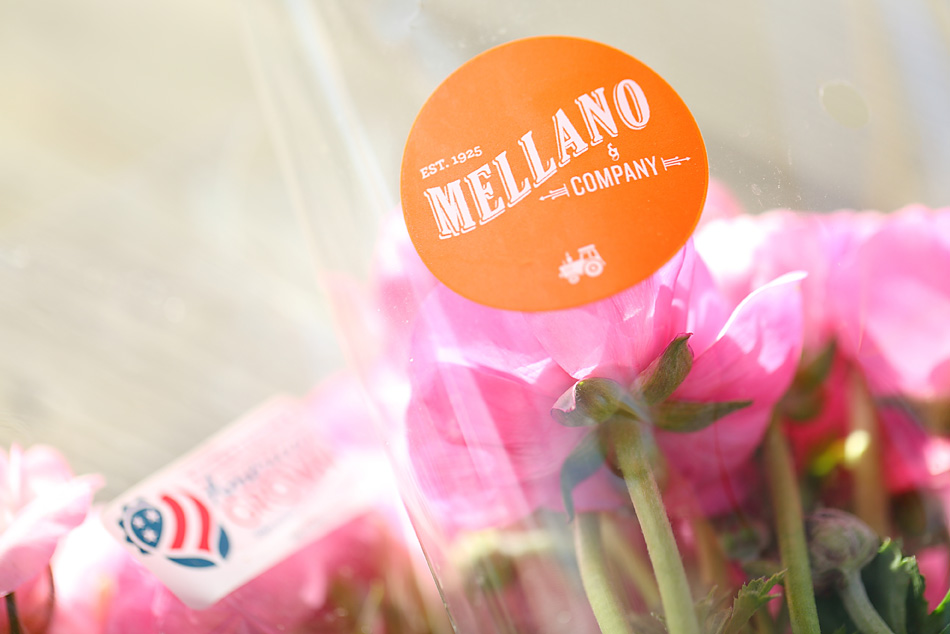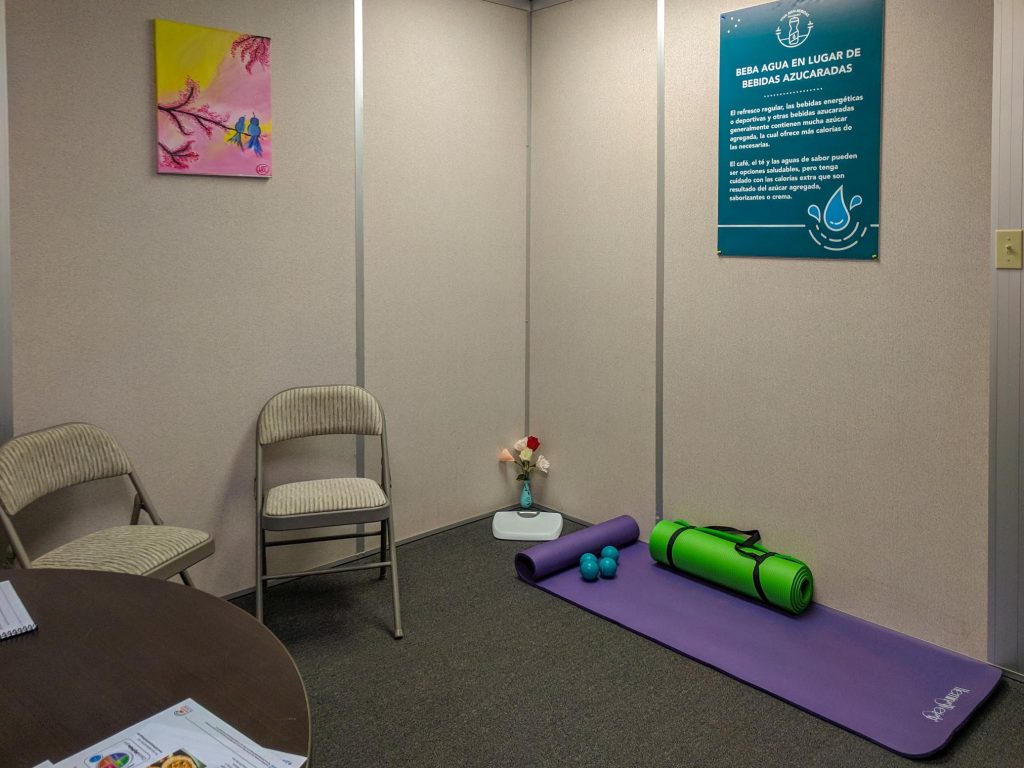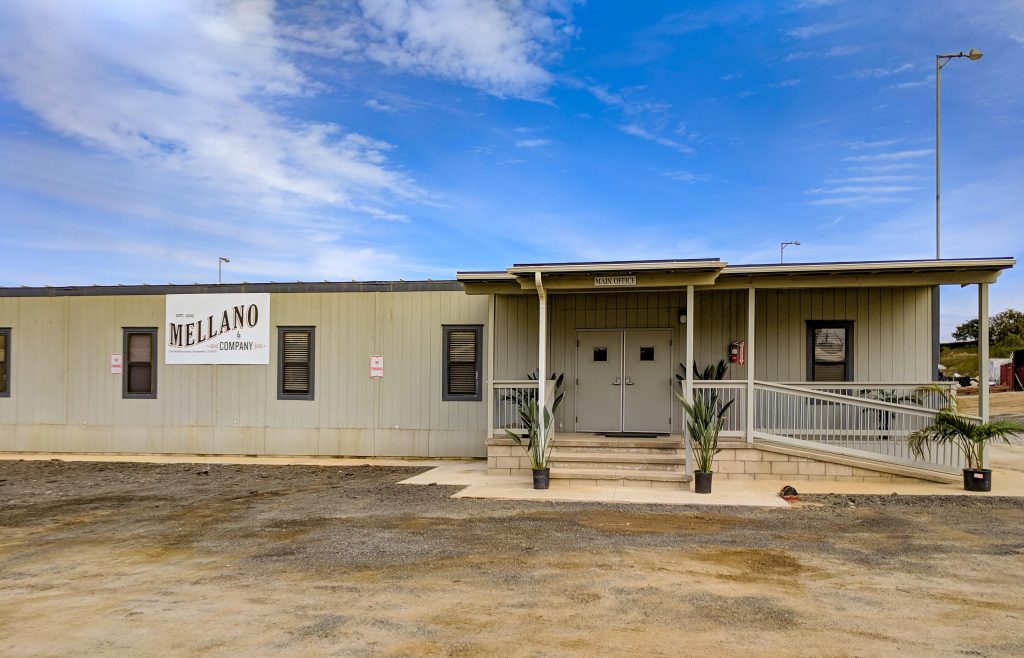





Receiving Statewide & Local Recognition
Mellano & Company (Mellano) is one of the largest flower growers located in Oceanside, California, who created breastfeeding-friendly workplaces with the support from Live Well @ Work and Lactation Supportive Environments. From these efforts, Mellano was recognized statewide by the California Breastfeeding Coalition with their “Mother-Baby Friendly Workplace Award” given by state legislative representatives at the California State Capitol on May 14, 2019. Additionally, Mellano was recently awarded locally by the San Diego County Breastfeeding Coalition with their “San Diego Breastfeeding-Friendly Workplace Award”. Mellano continues to be highlighted as an organizational best practice for other businesses, particularly in the agricultural sector.
Creating a Breastfeeding-Friendly Workplace
Breastfeeding is good for women, children, families, public health, and business. The latest breastfeeding rates indicate that the workplace poses a significant barrier for breastfeeding working mothers, particularly in low-wage industries. A baby-friendly workplace supports employees returning to work who want to continue breastfeeding, as well as providing a direct benefit to employers.1 These benefits include improved employee satisfaction, retention, and recruitment.2
In particular, breastfeeding may reduce the number of sick days that working mothers take,3 and one study estimated a savings of more than $1,400 annually on medical claims per breastfed baby.4 Also, women with adequate break time and private space are two to three times more likely to breastfeed exclusively.5 Oftentimes, the agriculture industry lacks resources supporting lactation accommodation and baby-friendly workplace practices.
Fortunately, Mellano & Company (Mellano) understood the positive impact a lactation support program and policy could have on their business, as well as on the health of the mothers and their babies. Founded in 1925, Mellano has grown to be one of the largest flower growers in the United States, with a large farm in Oceanside, California, a retail site in Carlsbad, California, and wholesale warehouses in Los Angeles, Santa Ana, California and Las Vegas, Nevada. Their company’s organizational mission integrates the importance of family and fostering a supportive work environment “to each generation that works the field, the coolers, the trucks, and our offices.

Partnering with Live Well @ Work
Through Supplemental Nutrition Assistance Program Education (SNAP-Ed) funding, and in partnership with Live Well @ Work*, Mellano established a wellness program to address the needs of their employees. Live Well @ Work supported Mellano with wellness resources and services to increase access to healthy eating, physical activity, and lactation accommodation for all employees. Based on the results from the Live Well @ Work Health ScoreCard, Mellano decided to focus efforts on developing a lactation accommodation program. As a first step, Mellano completed a “Lactation Supportive Environments Assessment” to gather information on employee demographics, existence of a current lactation policy and related supportive resources, and employer communication methods. After conducting the assessment, Mellano identified a need for the development of a lactation accommodation policy and baby-friendly workplace practices.
Through the assessment process, the HR Department found that there were many female employees regularly going out on leave, but there was no formal system in place to accommodate their worksite breastfeeding needs as they transitioned back to work. In order to address their employees’ needs for baby-friendly resources and support, Mellano adopted a comprehensive lactation accommodation policy and support program. Executive leadership and upper management supported the development and execution of this policy, which was critical to its effectiveness. The policy “encourages all of their pregnant and postpartum employees to consider breastfeeding their children as a means of promoting the health of both child and mother.”
In addition to a comprehensive policy, Mellano dedicated an office space as a dual-purpose room for lactation accommodation and relaxation for all workers, including those in the field. The lactation room features a comfortable chair, nearby access to a sink and refrigerator, as well as a binder of local breastfeeding and infant resources. The lactation room allows employees to nurse an infant brought in during lunch or breaks, or to pump breastmilk to be stored for later use. Breastfeeding employees are allowed a flexible schedule to accommodate nursing or pumping. Mellano’s HR Department supported each working mother to create a plan for where and when they were going to be able breastfeed or pump. This usually included communicating with the worker’s direct supervisor to inform them of the plan, as well as provide a gentle reminder of their company’s policy and support program. Also, the HR Department provided education to employees going out on leave on the benefits of breastfeeding and what local resources are available.
Their company’s organizational mission integrates the importance of family and fostering a supportive work environment “to each generation that works the field, the coolers, the trucks, and our offices.

Adopting Baby-Friendly Workplace Practices
Since the adoption of the baby-friendly workplace practices, almost half of the female workers were supported in being able to continue breastfeeding when returning to work. When the HR Department met with each of the expecting mothers to provide them with the resources and benefits that Mellano would provide while on-leave, and upon returning to work, it brought many expecting mothers to tears, exclaiming that they had no idea that these benefits were available to them. Some women even admitted that they were not planning to return to work, but now will do so since they will be supported to continue breastfeeding their baby.
These “wins” are shared with management to showcase the added benefits of lactation support to the company’s retention rates and bottom line. The entire organization’s culture has shifted to be inclusive of breastfeeding and pumping during work hours. Mellano’s HR Department trained and educated staff, including operation and site/crew chief managers, to be aware and supportive of new mothers returning to work. This education was sometimes challenging, as there are a lot of nuances to navigate in the agricultural industry, including how to accommodate new mothers who are typically out in the field all day. The crew chiefs have been very supportive of this new policy, and even drive employees back and forth from the lactation room. In these trainings, Mellano worked to destigmatize lactation accommodation by normalizing the language involved. This resulted in supervisors “reshaping their view on what it (lactation accommodation) is and why it’s beneficial.” Mellano was successful in shifting the culture to being one that embraced new mothers and encouraged them to come off the field to pump in the administrative offices.
“This workplace breastfeeding support policy recognizes that breastfeeding is the most healthful, natural and economic method of infant nutrition. It is our policy to support the needs of breastfeeding mothers when they return to work.” Mellano & Co. Human Resources Dept.
Sustaining Success
Mellano continues to provide unwavering support to their workers, stating “This workplace breastfeeding support policy recognizes that breastfeeding is the most healthful, natural and economic method of infant nutrition. It is our policy to support the needs of breastfeeding mothers when they return to work.” Their HR Department continues to provide trainings to upper management and supervisors on their current program and policy.
Also, the HR Department focuses on making the business case for breastfeeding, while outlining how employees could be accommodated in various work situations. These educational opportunities will be integrated into regular standing meetings within the organization, along with other employee wellness program updates. The lactation accommodation policy will be reviewed and updated on an annual basis, and any changes will be communicated to all levels within the organization.
These baby-friendly workplace practices have resonated at all levels of the organization and continue to gain traction and acceptance within the company. Overall, Mellano is an excellent example of identifying a champion within an organization to make a cultural shift and positively impact the lives of many mothers and their babies.
References
1. Murtagh L., & Moulton, A. D. (2011). Working mothers, breastfeeding, and the law. American Journal of Public Health, 101, 217–223.
2. Ortiz, J., McGilligan, K., & Kelly, P. (2004). Duration of breast milk expression among working mothers enrolled in an employer-sponsored lactation program. Peiatric Nursing, 30(2), 111-119.
3. Cohen, R., Mrtek, M. B., & Mrtek, R. G. (1995). Comparison of maternal absenteeism and infant illness rates among breast-feeding and formula-feeding women in two corporations. American Journal of Health Promotion, 10, 148-153.
4. American Academy of Family Physicians. Summary of Policy Recommendations for Periodic Health Examinations. AAFP Policy Action. Revision 6.0; August 2005.
5. Kozhimannil, K. B., & Jou, J. (2015). Access to workplace accommodations to support breastfeeding after passage of the affordable care act. Women’s Health Issues, 1, 6-13.
Author: Kelley Axelson, MPH, CHC
